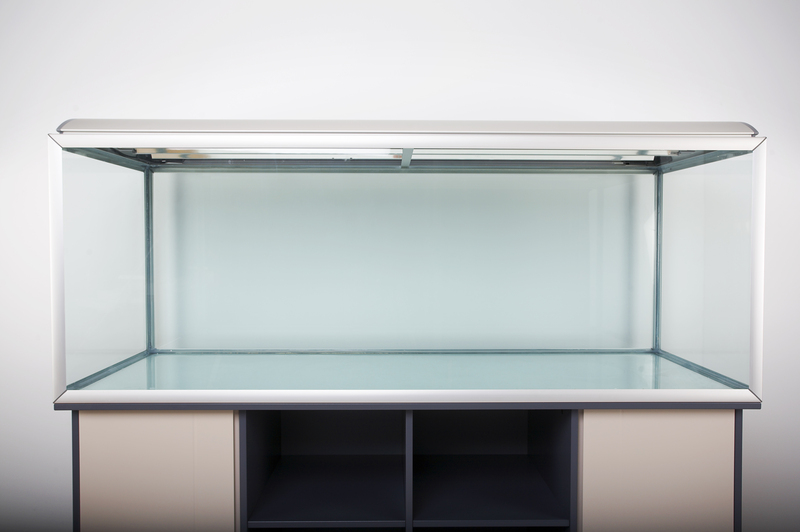Stress-Free Relocation: Transform Your Move Today
Posted on 18/06/2025
Stress-Free Relocation: Transform Your Move Today
Relocating to a new place can be both an exciting adventure and a daunting task. While the promise of a fresh environment and new opportunities looms ahead, the process involved in a house or office move can often become stressful and overwhelming. That's why achieving a stress-free relocation should be your top priority. In this comprehensive guide, we'll explore actionable strategies, expert tips, and valuable insights to help you transform your move today, ensuring a seamless and positive experience from start to finish.

Why Is Stress-Free Moving Important?
Moving is widely considered to be one of life's most challenging events. The mixture of logistics, emotional attachments, and the pressure of tight schedules can lead to significant stress. A smooth, hassle-free relocation not only preserves your peace of mind but also protects your belongings, budget, and relationships. Understanding the benefits of a calm and organized move is the first step towards making your transition enjoyable and rewarding.
- Better organization leads to fewer lost or damaged items.
- Reduced anxiety for all family members and pets.
- Allows for a positive start in the new home or office.
- Prevents unnecessary relocation costs and mistakes.
- More time to settle in and explore your new community.
Preparing for a Smooth Relocation
1. Begin with a Solid Plan
Preparation is key to a stress-free move. Start by creating a detailed moving checklist that covers every aspect of your relocation. Consider these essential steps:
- Set a moving date that gives you sufficient time to prepare.
- Decide whether you'll be hiring professional movers or handling the move yourself.
- List all tasks and arrange them in priority order (e.g., packing non-essentials first, disconnecting utilities, etc.).
- Allocate a budget for moving costs, including packing supplies, transportation, and unforeseen expenses.
2. Declutter and Downsize
Before you start packing, it's crucial to go through your belongings and declutter. Relocating is the perfect opportunity to minimize unnecessary possessions, making your move lighter and more economical.
- Sort items into categories: keep, donate, sell, or discard.
- Hold a garage sale or sell valuable items online to offset moving costs.
- Donate usable goods to charity for a positive impact on the community.
3. Organize Packing Supplies
Ensure you have the right supplies to avoid last-minute scrambles. Invest in:
- Sturdy moving boxes in various sizes
- Bubble wrap and packing paper for fragile items
- Strong packing tape and markers for labeling
- Furniture covers and moving blankets
Pro tip: Start packing non-essential items first and label each box clearly with its contents and destination room. This streamlines the unpacking process in your new home.
Choosing the Right Moving Solution
1. Professional Movers vs. DIY
One of the most significant decisions that influence a stress-free relocation experience is choosing between a do-it-yourself move and hiring professional relocation experts.
Professional Movers:- Pros: Experienced, efficient, and insured. Handle heavy lifting and complicated logistics.
- Cons: Costlier than DIY options. Must book in advance, especially during peak seasons.
- Pros: Cost-effective, full control over the process, flexible timing.
- Cons: Labor-intensive, potential for mishaps, responsible for all coordination.
Tip: If your move involves a lot of large or fragile items, or if you're under time constraints, choosing a reputable moving company may be the best way to ensure a stress-free moving process.
2. How to Find Reliable Movers
Not all moving companies provide the same level of service. To avoid unpleasant surprises, follow these tips:
- Research companies online and read customer reviews.
- Ask for recommendations from friends or family who have recently moved.
- Request quotes from at least three different movers to compare prices and services.
- Verify credentials, insurance, and experience for interstate moves.
Choose movers that are transparent about their rates and provide clear contracts--this lays the foundation for a stress-free relocation journey.
Packing Like a Pro: Organization Tips for a Smooth Relocation
1. Room-by-Room Packing
Pack one room at a time. This ensures that you stay organized and makes unpacking much easier. Use color-coded labels or markers to identify boxes by room.
2. Protect Valuables and Essentials
- Pack important documents, jewelry, and invaluable belongings in a separate, clearly labeled 'essentials' box/bag.
- Prepare a first-night box with toiletries, basic kitchen items, chargers, bedding, and a change of clothes.
3. Label Everything
Clearly label each box with its contents and intended location in your new home. For extra efficiency, number the boxes and keep a master inventory list.
4. Take Inventory
Maintaining an inventory not only helps you track your belongings but also speeds up insurance claims in the rare event of loss or damage.
5. Use Technology
Relocation apps and online checklists can help you stay on top of every task, from scheduling movers to updating your address.
Handling the Emotional Side of Moving
While logistics are vital, managing the emotional aspects of a move is just as important for a stress-free transition.
- Communicate openly with family members. Involve everyone in planning or packing.
- Visit your new area ahead of time if possible. Familiarity reduces anxiety.
- Saying goodbye - Organize farewells with friends and neighbors.
- Stay positive and focus on the exciting possibilities ahead.
- Seek support from loved ones or professionals if you're experiencing difficulties.
Moving Day: Ensuring a Calm and Efficient Process
1. Final Preparations
- Confirm all arrangements with movers or helpers the day before.
- Have cash, important documents, and valuables with you--not in the moving truck.
- Double-check that utilities are disconnected at the old location and ready at the new one.
2. Supervise and Delegate
If you're not moving solo, assign specific duties--such as supervising movers or managing children and pets--to responsible adults.
3. Conduct a Final Walkthrough
Before leaving your old home, perform a comprehensive walkthrough to ensure nothing is left behind, windows and doors are secure, and all utilities are off.
Settling Into Your New Home or Office
The relocation process isn't complete the moment you arrive. Making your space livable quickly helps maintain a stress-free relocation.
- Unpack your essentials box first to access daily necessities.
- Start with the kitchen and bedrooms to create comfort and order.
- Gradually decorate and arrange furniture to personalize your new space.
- Introduce yourself to neighbors or colleagues--building new connections eases the transition.
Bonus Tips for a Hassle-Free Move
- Update your address with the post office, banks, subscriptions, and relevant institutions.
- Transfer or set up utilities before moving in.
- Plan for pet relocation by researching local vets and pet-friendly parks.
- Keep a folder (digital or physical) for all moving-related documents and receipts.
- Set realistic expectations--moving is a process. Allow yourself time to settle in.
Common Mistakes That Cause Moving Stress
Even the best plans can be derailed by common pitfalls. To achieve a stress-free move, beware of these mistakes:
- Procrastinating on packing and organization.
- Underestimating moving costs or not setting a budget.
- Failure to research moving companies or read reviews.
- Not labeling boxes or keeping an inventory.
- Overpacking boxes, leading to damage or injury.
By avoiding these errors and sticking to your plan, you're much more likely to enjoy a worry-free move.

Frequently Asked Questions About Stress-Free Moving
How far in advance should I start planning my move?
Start planning at least eight weeks before your moving date. This gives you ample time to research movers, declutter, and address all crucial details. The sooner you start, the less rushed and stressful the process will be.
What is the best way to pack fragile items?
Use bubble wrap, packing paper, and sturdy boxes. Clearly label all fragile boxes and ensure they are placed on top of heavier items. If you hire professionals, clarify how they handle delicate objects.
Is it worth hiring professional movers for a small move?
Even for smaller moves, professional assistance can save time and reduce stress--especially if you have busy schedules, physical limitations, or valuable items. However, weigh costs and feasibility for your particular needs.
How can I keep my move eco-friendly?
Use reusable boxes, donate unwanted possessions, and recycle packing materials. Many moving companies now offer green relocation services--be sure to ask about eco-friendly options.
How do I help kids or pets adjust to a new home?
Maintain routines as much as possible, introduce your new location in advance, and set up familiar items (toys, bedding) right away. Patience and reassurance go a long way in minimizing emotional upheaval.
Conclusion: Your Journey to Stress-Free Relocation
Moving doesn't have to be a nightmare. By incorporating the tips, techniques, and strategies outlined in this guide, you can successfully transform your move into an organized and positive experience. Whether you're shifting homes, apartments, or offices, a stress-free relocation is within your reach with careful planning, open communication, and the right support.
Ready to make your next relocation smooth and enjoyable? Start today, embrace the journey, and turn your move into a stepping stone to new adventures. For more expert advice on stress-free moving, stay connected--your easiest move awaits!
Latest Posts
The Hidden Perils of Moving Pianos: Ditch the DIY Plan
Stress-Free Relocation: Transform Your Move Today
Find Freedom Through Decluttering Pre-Move












